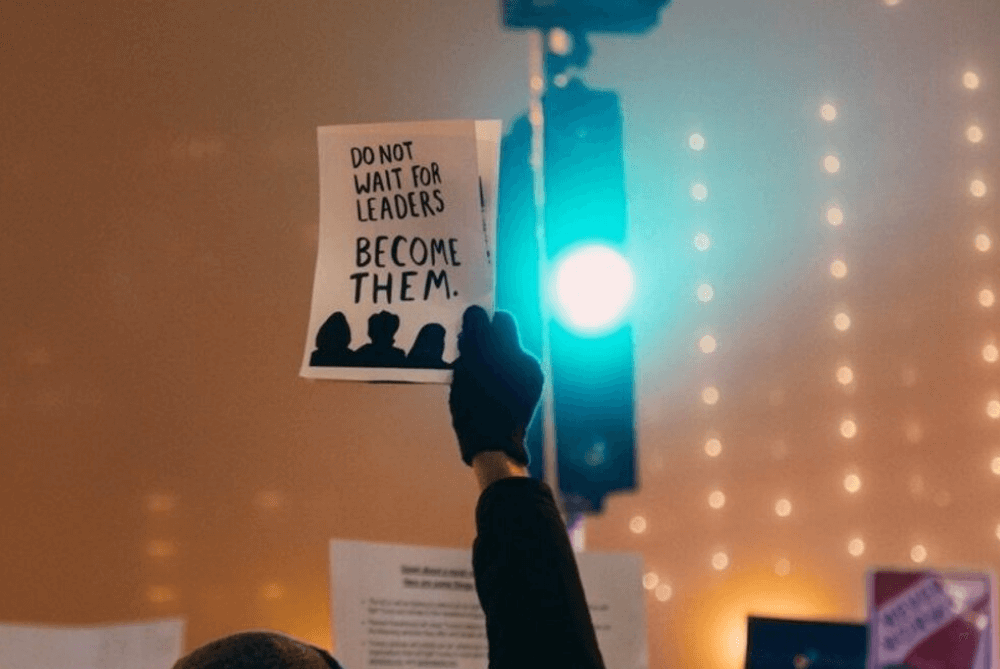
Leadership isn’t just for leaders …
We asked our Development & Coaching Services Principal, Simon Rickman what being a leader means to him….
“Well to start, I think using the term ‘leader’ can be highly misleading” he said. “After all, we all ‘lead’ something in our lives. It may be ourselves, or other people (be it an employee, a spouse, a child etc.). But we all take the ‘lead’ at some point. Perhaps the word ‘responsible’ is more apt. Because we should take ‘responsibility’ for what happens to us, regardless as to what it is, why and how.”
However, calling someone a ‘responsibler’ sounds a bit weird….so ‘leader’ will do. Many thanks to Simon for sharing his leadership insights with B2E.
Leadership Philosophy
I have coached and led hundreds of people on how to get the best out of themselves and out of others, so that they can take the lead. To do this, I’ve explained the importance of being able to respond (or be responsible) for your thoughts, actions and deeds. To achieve this, I’ve reached out to some of the most influential people in my life. I never met them in person, but I allowed them to get inside my head, and thus change my approach to work and life. They never leave. And as a result, they have become a part of me. I have asked them for direction, support and guidance at different stages in my life.
So I must thank the likes of Covey, Canfield, Beck, Sinek, Jeffers, Waitley, Carnegie, Whitmore etc. for helping me to be a ‘better’ person. Well, at least I think so. Of particular influence has been Stephen Covey’s ‘7 Habits if Highly Effective People’. I first read this in 1997, when I was at a low ebb in my career. I was looking for guidance and direction; and Covey’s principles seemed to be speaking to me directly. So, I read the book twice, highlighted the key sentences that stood out for me, and typed them up. They immediately made a positive difference to my professional and personal life. I made them the ‘spirit’ of how I was going to get the best out of myself and others. This became the first step on my journey as a coach, mentor and leader.
Since then, I have run workshops and coaching sessions with my teams and my clients, seeing amazing results in their lives as well as my own.
Let’s Get Back To ‘Leadership’
by taking the definition to include,
“Creating an inspiring vision of the future. Motivating and inspiring people to engage with that vision. And managing the delivery of that vision.”
If this is the case, then something is desperately missing in my world today. When I look around me, I see divisiveness not diversity; I see polarisation not collaboration; I see poison and not positivity. Our leaders fuel the flames as they strive to make their mark on the world. It doesn’t seem to be for me and my future, but just for their own short-termism.
I can look back on the journey I have taken in the last 50 years. In my opinion, we seem to be going backwards, not forwards. The paradigms of the 70s have been correctly challenged (Saville and Hall to be held up as prime examples of hero to zero). As a result, I’ve seen confusion about what is the ‘right’ thing to say and to do and how to behave.
How Do We Move Forward With A Positive Step
We need to plug the vacuum that has been created as a result of the disruption around us.
That’s why I return, again and again, to those business philosophies that have stood me well over time.
For example, how do I get the best out of my team? You put them front and centre, and not yourself.
Being a leader doesn’t mean that you have to be making all of the decisions all of the time. It’s about making the right decisions when it’s right to do so. That may mean stepping aside for someone else to take the lead at the appropriate time. I’ve seen too many leaders take all of the decisions. I’ve seen too many leaders wade in with their big feet (and mouths) and take over. As a result, I’ve seen too many of their ‘followers’ get disgruntled because they lost an opportunity to give it a go; or to take a risk; or to speak their mind.
So the next time you are tempted to give the answer, hold off.
Give someone else a chance. Use the opportunity to get the best out of that person. If they are fully capable and confident, then let them get on with it. If they need a bit of a helping hand, then ask them the right questions to get them to the right answer. If they are still stuck, then you can make the decision, but not before getting their opinion first. If they are genuinely clueless, make the decision, and then help them to understand how you came to that conclusion.
It works every time for me. It’s the genuine win-win!

About the author, Simon Rickman
Simon Rickman leads the Development & Coaching offering at B2E . With over 30 years’ experience of leading, developing and coaching teams, he uses a variety of methods to support the development of teams and individuals, including 1-2-1 coaching sessions (using the Whitmore GROW model) and delivering interactive and inspirational development workshops.
A current B2E client recently said of Simon, “he is excellent at reframing, expanding, focussing and developing the skills you already possess, helping improve the areas that need work, and weaving it all back into your work environment.”
Previously Simon held senior roles within Recruitment and HR teams in Pinsent Masons, TMP Worldwide, Accenture, American Express, Hyphen (Adecco) and others.






